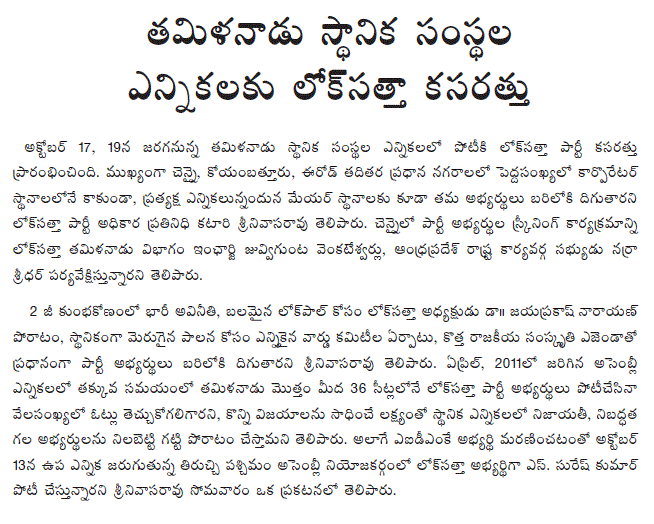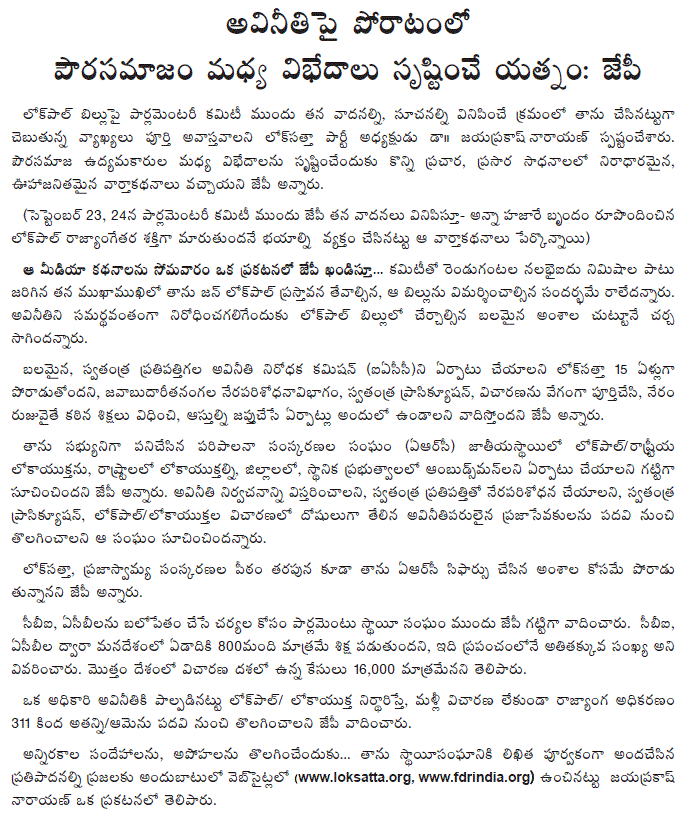Lok Satta looks beyond Lokpal to eradicate corruption
As many as 1500 leaders of the Lok Satta Party from around the State will be congregating at Ongole on October 8 to discuss ways and means of taking the fight against corruption to a higher plane.
The party is organizing the leadership summit to mark its fifth anniversary.
Addressing a media conference here today, Lok Satta Party Working President D. V. V. S. Varma said that the leadership summit would outline the way forward for the Lok Satta Party when most of the traditional parties, steeped in corruption, had lost their credibility. The Lok Satta Party has almost successfully fought for the creation of Lokayuktas in States along with the Lokpal at the national level. It is a matter of time before these institutions come into existence. Creation of a strong anti corruption mechanism alone will not do.
Mr. Varma said that the electoral system, which is largely responsible for corruption taking deep roots, needs to be overhauled. A solution lies in replacement of the first-past-the post system by proportional representation. There is also the need for regulating the functioning of political parties. Political parties have become dynastic or despotic since there are no laws to ensure they are transparent and democratic in their day-to-day activities including selection of candidates for contesting elections and collection of funds.
Mr. Varma said that an extended meeting of the party’s Working Committee on Otober 9 would lay down a road map for the party. It will spell out the programs the party will take up and finalize steps to strengthen the party at all levels.
Mr. Varma said that the Government of India should take steps immediately to resolve the political uncertainty in the State. The Center cannot abdicate its responsibility and blame others for the crisis caused by its complacency. He appealed to all political parties to observe restraint in the present surcharged atmosphere and not fuel regional animosities.
Mr. Katari Srinivasa Rao, party General Secretary, denied reports in a section of the media that Dr. Jayaprakash Narayan would step down as President and that new leaders would head the party. Dr. JP would continue to head the party and be its friend, philosopher and guide, he added.
Mr. P. Bhaskara Rao, Secretary, released a poster for the party’s Ongole conference.


